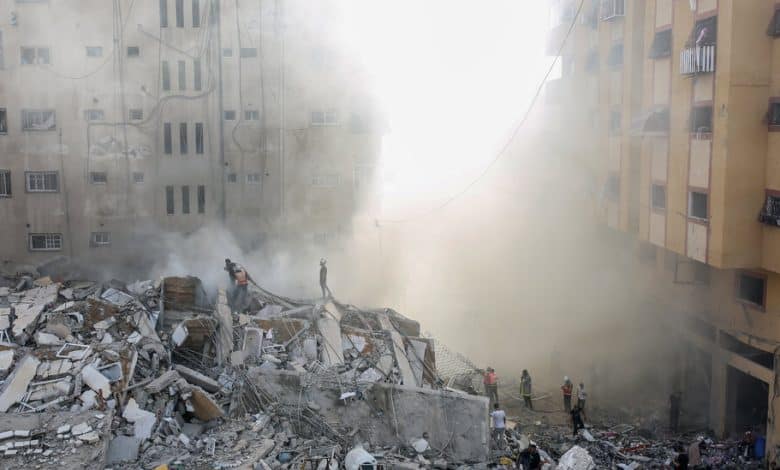Gaza’s Shadow Death Toll: Bodies Buried Beneath the Rubble

A curly-haired young man shakes as he bends over the mound of smashed concrete that used to be his friend’s home. He clutches his rain-spotted iPhone in his trembling hands, but there is no answer. “Please God, Ahmed,” he sobs in a video posted on social media. “Please God.”
A father crawls over a mountain of gray concrete shards, his right ear pressed to the dust. “I can’t hear you, love,” he tells his absent children in a different video shared on Instagram and verified by The New York Times. He scrabbles over a few yards to try again. “Salma! Said!” he yells, hitting his dusty hammer against the mute concrete over and over, before breaking down. “Said,” he cries, “didn’t I tell you to take care of your sister?”
Another man on another rubble heap is looking for his wife and his children, Rahaf, 6, and Aboud, 4. “Rahaf,” he cries, leaning forward to scan the twisted pile of gray before him. “What has she done to deserve this?”
Gaza has become a 140-square-mile graveyard, each destroyed building another jagged tomb for those still buried within.
The most recent health ministry estimate for the number of people missing in Gaza is about 7,000. But that figure has not been updated since November. Gaza and aid officials say thousands more have most likely been added to that toll in the weeks and months since then.
Some were buried too hastily to be counted. Others lie decomposing in the open, in places too dangerous to be reached, or have simply disappeared amid the fighting, the chaos and ongoing Israeli detentions.
